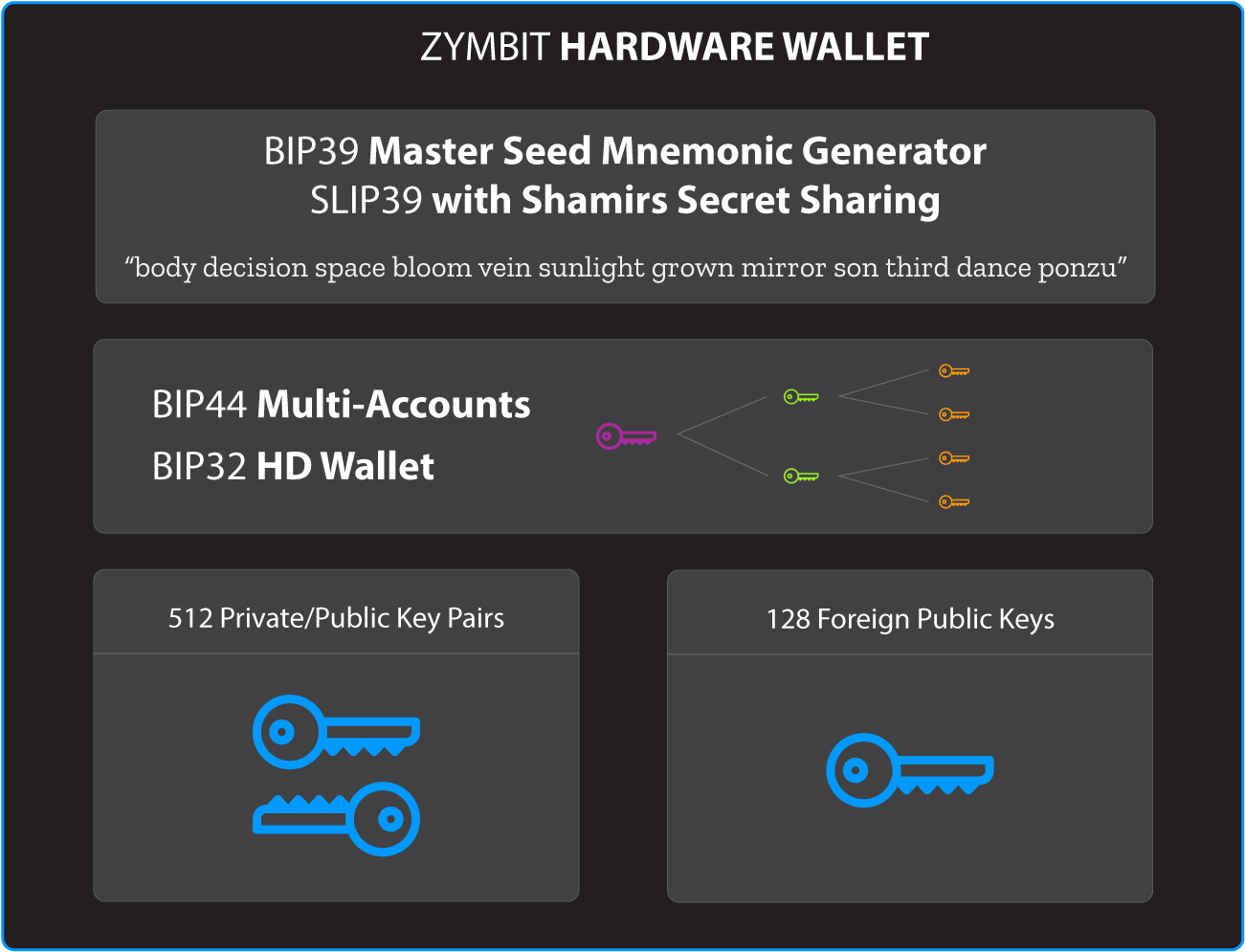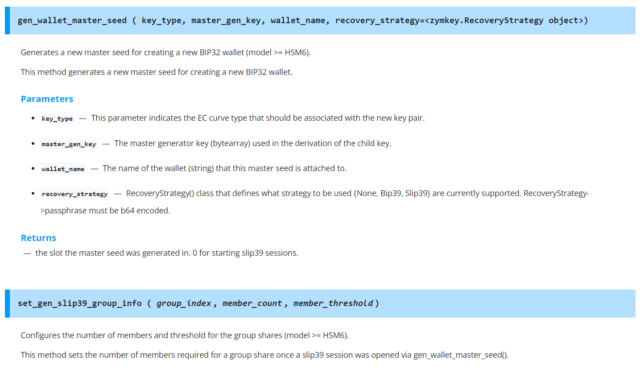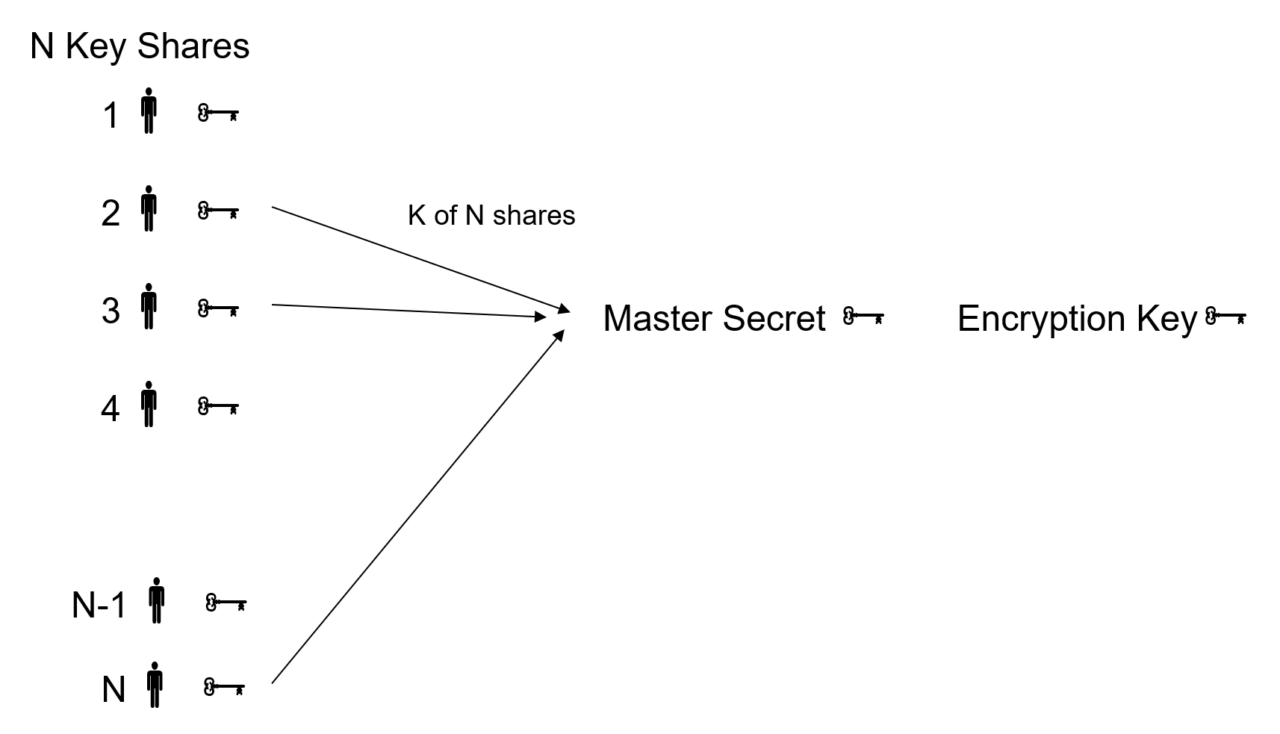HD Hardware Wallet
- Tamperproof hardware storage for hundreds of keys
- HD wallet – BIP32
- Multiple coin and account support – BIP44
- Mnemonic generation and recovery – BIP39
- Shamir’s secret sharing generation and recovery – SLIP39
- secp256k1, nistp256, ed25519 curve compatibility
- Signing and verification functionality
- Blockchain account, transaction, and dApp integrations
- Tamperproof storage for hundreds of keys
- BIP32 & BIP44 compliant HD wallet
- BIP39 & SLIP39 recovery options
- nistp256, secp256k1, ed25519 curve compatibility
- Signing and verification functionality
- Ethereum integration libraries

Available on these Zymbit Products
Python, C, C++ APIs
As developers ourselves, we try to build APIs that allow you to benefit from the power of cryptography, without needing to understand the underlying math. Zymbit wallet functions are designed to provide access to powerful features like generating a wallet master seed, child keys and managing wallet recovery from mnemonic phrases and shared secrets.


Wallet SDK
Blockchain accounts, signatures, and transactions have an additional layer of complexity over traditional cryptographic keys and signatures. Our Wallet SDK aims to abstract away this complexity, enabling you to seamlessly integrate with blockchains without having to deal with their technical intricacies.
- Account creation and management
- Transaction and message signing
- Seamless integration with dApps
- Available in multiple languages
Metamask Integration
An integration between Zymbit’s hardware wallet and Metamask’s Keyring Controller. Perfect for managing a keyring with many Ethereum accounts. It allows for creating, managing, and using (signing transactions and messages) Ethereum accounts associated with a specific keyring.


Applications
Cryptocurrency storage: Securely store and manage cryptocurrencies, ensuring private key safety and seamless transactions – point of sale terminals, vending machines, digital asset custody, etc.
Ethereum Validators: Safeguard Ethereum validator private keys for making attestations and withdrawals.
Hardware Oracles: Ensure the integrity of data collected by edge devices by using the built-in cryptographic functions. Check out proof of concept Project ZORAQLE
Wallet recovery with SLIP39 Shamir's secret sharing
HSM6 implements SLIP39 from Satoshi Labs. This protocol provides a standard and interoperable implementation of Shamir’s secret-sharing (SSS) that can be used to back up Hierarchical Deterministic Wallets described in BIP-0032. SSS splits a master secret into unique parts which can be distributed among participants. A specified minimum number of parts is required to be supplied in order to reconstruct the original secret. Knowledge of fewer than the required number of parts does not leak information about the master secret.

Read-only oversight wallet
The Zymbit oversight wallet is a read-only wallet that contains only public keys, not their corresponding private keys. This feature can be useful for providing a copy of a wallet to a financial advisor or account supervisor who needs to track the history of a wallet, but should not be able to change it in any way.
Javascript API
Looking to integrate our hardware wallet into your Node.js applications? We got you covered. We’ve ported our wallet functions into an easy-to-install and ready-to-use Node.js module.




